#long live the writers
Text
Today is Fanfic Writer’s Appreciation Day...
...so here’s my list:
Anne B Walsh (aka whydoyouneedtoknow): Writer of the Dangerverse AU, a Harry Potter AU where Remus Lupin meets Danger Granger, Hermione’s sister and an untrained Dreamseer, a seer who receives prophetic dreams. Her magic was awakened upon the death of her parents, so she never went to Hogwarts (at least in the main series, it’s different in other AUs). Because of her dreams, Remus learns the truth about Peter, breaks Sirius out of prison, and kidnaps Harry from his aunt and uncle. The whole series is worth a read, even if you’re not a fan of canon Harry Potter. The series goes through all seven years of schooling, and fair warning, some beloved characters die, and it’s miserable. But overall it’s a good time.
Start reading here: Living with Danger
Rhiannon Archer (aka SplendentGoddess): Writer of Inuyasha fanfiction, this writer deserves recognition, even though the fandom is older. I think fandoms get better with age, especially after the main canon is completed and all the crazy fans leave.
Recommendation: Cheap Imitation: the thoughts of a miko, 250 words, well-written, and it may surprise you.
Ravyn: Writer of several fandoms, I would like to highlight the contributions to the Rurouni Kenshin fandom, another old fandom (hmmm, is my age showing? maybe, maybe not. :P) Ravyn tends to write AUs, and more mature fics, but there are a ton of hidden gems (I’m going to be honest, the RK fandom is full of older hidden gems, but I think I’ll keep them held for future sharing. :])
Recommendation: Trouble with Vegas: In a world of magic, Kaoru wakes up heart-bonded to an assassin. And she doesn’t remember marrying him.
Lacrow: Oh look, a new fandom! SpyXFamily was a small but appreciated fandom, then the anime hit, and it exploded. Old writer got more appreciated, and new writers brought new gold. Lacrow brings to the table amazing AUs and fun little scenarios that may be canon one day...
Recommendation: Forged in Fire: In a world of magic and gods, the Iron Curtain was placed by the god WISE to separate two countries. Ten years later, a certain disinherited young noble becomes a squire to a certain blonde paladin, and new adventures begin.
Cinnomyn: I would like to highlight Cinnomyn’s work in the Pokémon Mystery Dungeon fandom with the flavor text series, a collection of ficlets that look at different items from the PMD series. Short, simple, and incredibly well-written.
Series collection here: flavor text
Titans R Us: This writer has contributed to several fandoms, but I would like to bring their Voltron Legendary Defender work. It’s fluffy and tooth-rotting, a lot of their works highlight the bond between the paladins. Pillow Forts for the Soul is especially warm, when the Gunderson trio help each other through their homesickness.
Read it here: Pillow Forts for the Soul
xLoveMx: Finally, I would like to highlight xLoveMx’s works, especially the Critical Role works. I have certain opinions of the CR fandom, but the fix-it fic writers and other amazing authors help make things better.
If you like Widojest, here’s some tooth-rotting fluff for you: Something Always Brings Me Back To You
If you like Macabre Melody, here’s some angst with a happy ending: 'Cause I Really Need To Know That You'll Stick Around
...aaannnd a comfort oneshot: So I'm Thankful For The Scars ( 'Cause Without Them I Wouldn't Know Your Heart )
...
...
[[Okay, confession time: This list was an excuse for me to dig though my fanfic list and advertise my favorite authors.
Do I regret it? Absolutely not.
Am I going to do it again next year? Absolutely yes. I have a ton more authors I want to share with ya’ll.]]
:]
#fanfic#fanfic writer's appreciation day#appreciation day#Harry Potter#inuyahsa#rurouni kenshin#spyxfamily#pokemon mystery dungeon#voltron#widojest#macabre melody#critical role#long live the writers#fandom life#my opinion#hanatsuki esperanza
9 notes
·
View notes
Text
can you believe that we have fanfiction. that we have websites dedicated to fanfiction. that there is a place that you can go and read tens, hundreds, thousands and thousands of pieces of writing that strangers have made. people who are not "writers". people who come home at the end of the day and have feelings and say, i am going to put that into words. i am going to share those words. short, long, sweet, sad, horny, funny, wonderful words. we are all just human and we all love to make and remake and share that with others. can you believe that.
#ao3#archive of our own#fanfiction#sometimes i can't even believe how much i myself have written. like i think i am not a writer. i am not doing enough. i do not write enough#and i look back and i have 34 (34!!) works on ao3 and reams of unpublished work on my computer and so long left to live. so i think#we will be okay.#writing
39K notes
·
View notes
Text
the fact that shakespeare was a playwright is sometimes so funny to me. just the concept of the "greatest writer of the English language" being a random 450-year-old entertainer, a 16th cent pop cultural sensation (thanks in large part to puns & dirty jokes & verbiage & a long-running appeal to commoners). and his work was made to be watched not read, but in the classroom teachers just hand us his scripts and say "that's literature"
just...imagine it's 2450 A.D. and English Lit students are regularly going into 100k debt writing postdoc theses on The Simpsons screenplays. the original animation hasn't even been preserved, it's literally just scripts and the occasional SDH subtitles.txt. they've been republished more times than the Bible
#due to the Great Data Decay academics write viciously argumentative articles on which episodes aired in what order#at conferences professors have known to engage in physically violent altercations whilst debating the air date number of household viewers#90% of the couch gags have been lost and there is a billion dollar trade in counterfeit “lost copies”#serious note: i'll be honest i always assumed it was english imperialism that made shakespeare so inescapable in the 19th/20th cent#like his writing should have become obscure at the same level of his contemporaries#but british imperialists needed an ENGLISH LANGUAGE (and BRITISH) writer to venerate#and shakespeare wrote so many damn things that there was a humongous body of work just sitting there waiting to be culturally exploited...#i know it didn't happen like this but i imagine a English Parliament House Committee Member For The Education Of The Masses or something#cartoonishly stumbling over a dusty cobwebbed crate labelled the Complete Works of Shakespeare#and going 'Eureka! this shall make excellent propoganda for fabricating a national identity in a time of great social unrest.#it will be a cornerstone of our elitist educational institutions for centuries to come! long live our decaying empire!'#'what good fortune that this used to be accessible and entertaining to mainstream illiterate audience members...#..but now we can strip that away and make it a difficult & alienating foundation of a Classical Education! just like the latin language :)'#anyway maybe there's no such thing as the 'greatest writer of x language' in ANY language?#maybe there are just different styles and yes levels of expertise and skill but also a high degree of subjectivity#and variance in the way that we as individuals and members of different cultures/time periods experience any work of media#and that's okay! and should be acknowledged!!! and allow us to give ourselves permission to broaden our horizons#and explore the stories of marginalized/underappreciated creators#instead of worshiping the List of Top 10 Best (aka Most Famous) Whatevers Of All Time/A Certain Time Period#anyways things are famous for a reason and that reason has little to do with innate “value”#and much more to do with how it plays into the interests of powerful institutions motivated to influence our shared cultural narratives#so i'm not saying 'stop teaching shakespeare'. but like...maybe classrooms should stop using it as busy work that (by accident or designs)#happens to alienate a large number of students who could otherwise be engaging critically with works that feel more relevant to their world#(by merit of not being 4 centuries old or lacking necessary historical context or requiring untaught translation skills)#and yeah...MAYBE our educational institutions could spend less time/money on shakespeare critical analysis and more on...#...any of thousands of underfunded areas of literary research i literally (pun!) don't know where to begin#oh and p.s. the modern publishing world is in shambles and it would be neat if schoolwork could include modern works?#beautiful complicated socially relevant works of literature are published every year. it's not just the 'classics' that have value#and actually modern publications are probably an easier way for students to learn the basics. since lesson plans don't have to include the#important historical/cultural context many teens need for 20+ year old media (which is older than their entire lived experience fyi)
23K notes
·
View notes
Text
Perhaps they were right putting love into books. Perhaps it could not live anywhere else.
#love#in#books#love couldn’t live anywhere else#literature#books and lovers#art#poetry#romantic academia#dark academia#music#vintage aesthetic#tumblr writers#literature quotes#literature academia#dead poets society#longing#quote dump#bookstagram#explore#tumblrtextpost#life quotes#love quote tumblr
2K notes
·
View notes
Text
Me, to my new date: doctor who thinks it's a sci-fi story because the Doctor thinks it's a sci-fi story and because the companions think it's a sci-fi story, but it's really just a story about ghosts. a story about an ancient creature carrying the ghosts of everyone they have ever loved, meeting new people, and seeing them only as future ghosts. they are haunted by the future and the past and the present because they are the only constant in a world constantly in flux, and they are running as fast as they can to things before they burn and fade to dust but everything will always end, you understand, because this is the only thing the Doctor understands and yet they keep going. they love too much to stop. doctor who is not science-fiction, it's horror and optimism and spiritual more than anything else, it's religious unto itself, the TARDIS is a haunted house and a church and a graveyard and a hospital and the Doctor is the most haunted being in the universe but more than anything, this is a love story, because how can you love something without being haunted by it- hey, what are you doing?
My date, shoving breadsticks in their purse: I have to go-
#more unhinged doctor who meta#doctor who#meta#*into a bullhorn* IT'S A GHOST STORY#ninth doctor#tenth doctor#eleventh doctor#doctor who meta#twelfth doctor#thirteenth doctor#it's abt the time war & dalek & the parting of the ways & doomsday & the last of the time lords & journey's end & angels take manhattan#it's about hell bent and death in heaven and the doctor falls and it takes you away and the woman who fell to earth#it's about the montage of all of the people the doctor has let down#it's about astrid peth and amy pond and rory williams and rose tyler and bill potts and clara oswald and grace o'brien#it's about gaps in memory and memories that live too long to ever heal#the doctor is a haunted house#it's a show about cycles by its very structure#the moment that regeneration became a mechanic for the writers to use and companions began to move out the doctor was DOOMED#but what makes them fascinating is that they see themselves as doomed and blessed at the same time#because they will never ever stop running#clara oswald#amy pond#rose tyler#bill potts#the ghosts are INEVITABLE
441 notes
·
View notes
Text
Eddie Munson does do the whole rock star thing, but it doesn't quite go the way it did in the daydreams of a sixteen-year-old kid trying to stay awake in school.
He leaves Hawkins after the world doesn't end, gets himself out there, takes all the hurt and fear and fucked up shit and puts it into a handful of good enough songs to get himself signed.
It's not quite the genre he grew up with, not quite something any of his idols might have played, but only because it is so entirely Eddie, so influenced by where he's been and what he's seen that it kind of doesn't fit one specific influence.
It's new and it's good, is the point. Really good. And he skyrockets fast enough to give himself the spins.
He's recognizable and then he's famous and then he's too famous and too young to know what to do with it and too far from home and everyone he loves to really cope with it and it's just.
Eddie isn't built for it. Eddie hasn't even processed the fact that he was maybe supposed to die in that place, or the fact that he did watch people better than him actually die, but he's out here shooting to the top of the charts and being called the next big thing and it's too much.
It's just enough, at the end of it all, for him to self-sabotage his way out of being more than a one-hit wonder.
One big hit, a contract broken by the guys at the top with the fancy lawyers because Eddie has become the too much thing, just like always, and it's over as quick as it started.
He disappears, becomes one of those whatever happened to him? he was supposed to be the next big thing? stories that travel by word of mouth and then fade with the shift in conversation.
So what does happen to Eddie Munson?
He falls hard, he hits rock bottom, he crawls his way home to an uncle who deserved for Eddie to really make it, make him proud, have him financially set for life and get him into a real house with two stories and a garage to park the truck in, maybe even a yard for a dog.
He spirals and isolates and falls apart and stops letting himself make music at all and makes some personal choices that will probably have lasting effects on him for the rest of his life and then somewhere along the line a girl with hair like tangerines and terrible aim manages to smack him with her cane and says if I learned to walk again, so can you, asshole.
There are people in his life again after that, a reason to get out of bed and realize that he can make Wayne proud in more ways than the one he'd already fucked straight to hell.
Eddie watches a bunch of kids graduate high school and then he packs up and chases down some people who pulled him out of hell once before up in Chicago, crashes on Steve and Robin's couch until he gets himself a job painting houses and they can afford three bedrooms instead of just the two.
He cuts his hair, not short but shorter, and he gets more tattoos and itches for the guitar that sits in a case under his bed, ignores it. Itches for the pen in his hand, ignores that too.
He's still barely past his mid-20s and he still has some fucking around left to get out of his system, some finding out to accomplish doubly so, but he learns as he goes no matter whether it's forwards or backwards.
He falls in love and falls out of it, gets fired from jobs and tracks down new ones, gets into fights with his friends because they're all a little fucked up and codependent and weird but makes up with them for the same reasons.
The thing with Steve happens slowly, going from tolerating each other for the sake of knowing they'll always be on the same team to genuinely liking each other to discovering a care between the two of them that's a bit too strong to be normal about even if it still takes them a half-dozen so-called turning points to really name it and take it and keep it.
Eddie's 33 when they buy a condo together on the outskirts of Chicago two weeks after they fall into bed with each other for the first time, and he's over a decade on from being a kid who rose to the top too fast but it doesn't feel dissimilar, that sensation of a too-good thing that's bound to go wrong.
Only this time he doesn't try to sabotage it, tries the opposite, tries to hold it tightly in ways that would probably be too tight for anyone other than Steve Harrington with all his deeply intense feelings and inability to love at anything other than an eleven.
It's in the move that Steve finds a box of notebooks, snoops because it's who he is, and finds years worth of words that never made it past the tip of a pen but did, eventually, make it that far.
And it's not an easy thing, convincing Eddie that they're words worth sharing, because Eddie doesn't want it to be an easy thing. He can't let kind words shoved into his orbit by a beautiful man be enough to make it feel worth it, can't see a world where sharing his art doesn't end in another great big self-induced mess that he can't let happen when he's finally found something good.
He doesn't want to go on tour and get screamed at on stage and, besides, he's pretty sure the rest of the world doesn't want to scream for him anymore either, but then Steve has to go and remind him--
"You don't have to be the face of it. You can just be the words; you are so fucking good at being the words, Ed."
Which still isn't quite enough to be convincing, but it's a start in a solid six months of the words coming easier now that he has someone to share them with, someone to listen as Eddie plucks away at a guitar that sits out in the open now, free of dust.
It stops feeling like something shameful to hide, his music, and the thing is? It doesn't feel how it did back then either.
It's not an escape or a purge of violent energy or a distraction from everything he didn't know how to think about. Sure, it takes all of that into consideration because it takes the whole of Eddie into consideration, but more than anything it's just fun.
Like he's thirteen and still learning how to play the guitar, like it's just a hobby that never has to go anywhere, like it's just art that maybe deserves to be heard.
Everyone pitches in on ideas when they find out he's trying to come up with a pseudonym, and it's goofy and supportive and kind of the final straw in reaching out to old, burned bridges to see about any new artists looking for equally new tunes.
The first time Eddie and Steve catch familiar lyrics being sung by a new hotshot band on the radio, Eddie cries not because he's jealous or disappointed, but because it feels right.
He doesn't like being up in front of the crowds, had only ever walked across tables and made himself big and scary and loud out of self preservation, would always rather his biggest performances be for the people he knows really care.. Besides, after everything he's survived he's learned, albeit slowly, that he really likes the freedom of the quiet.
This way he still gets to say what he has to say, gets to throw his hat into the ring of an artform that he loves without selling his soul to a machine that tried to eat him alive (trust him. he knows what that feels like.)
Of course, someone is going to put 2 and 2 together eventually, the industry isn't as big as it looks and pseudonyms only pull so much weight when you went out in such a spectacularly messy and memorable fashion, but Eddie's got his condo in Chicago.
He's got the guy he shares it with in his bed.
He's got two cats and a windowsill full of plants he's going to keep alive this time, Steve, just you watch.
He's got his uncle settled in Indy these days, a small place with a small yard.
He's got music, too. Turns out even his own tendency to self-destruct couldn't take that away, huh?
It's what got him out of hell alive, after all.
#dot post#dot fic#eddie munson#steddie#one hit wonder eddie has lived rent free in my head for too long you guys have to join me in this before I lose my mind to it#rockstar!eddie#writer!eddie
2K notes
·
View notes
Text
I think what makes Our Flag Means Death so remarkable in terms of representation is not just the broadness of it, but the depth.
We have an indigenous lead character, but he's not only that. He's also queer. He's a romantic interest. He's middle-aged. His arc portrays surviving trauma and abuse. It also portrays mental illness. And it portrays breaking free from toxic masculinity. And it never tries to put him in a box when he explores his masculinity and femininity.
We have a non-binary character, played by a Puerto Rican NB actor, but their arc is not about their gender identity and their coming out is simply a case of "Just keep calling me Jim". They have a romantic/sexual relationship with a black character, and never is this relationship or either of their sexual orientations or Olu's sex appeal as a fat person or "who even is the man in this relationship hahaha" questioned. When they get into a poly relationship, it's just accepted, instead of questioned or even defined.
These are just a couple of examples. It's not that Our Flag Means Death is the only or the first show with queer/BIPOC/disabled representation, because it's not. What makes the show remarkable is the unique combination of queerness, ethnicity, age, disabilities, life experiences, etc. that each character carries within themselves, yet none of these characters exist solely to appear as representation of any minority on screen. Their identities are not glued onto them, they're ingrained, but in the end, they're just people. Just like in real life. Identities do not work as plot points. Being queer is not a plot point. Being non-binary is not a plot point. It's just a small part of the whole complex experience of life.
OFMD is a perfect example of telling a queer story that doesn't focus on telling a story directly about the queerness itself. Because we have stories about queerness already. We have so many of them that it just feels like tokenism at this point to see yet another story about coming out or forbidden love or anything like that, even if it's well made.
This show took me by surprise with every new way of representation it offered, because each time it did the total opposite of what I expected. It took all the tired tropes and said, "Yeah, see these? We're not gonna do any of that." It delivered something I never thought I'd see on screen.
It never explains the characters' identities to the audience. It simply shows them exactly the way they are and lets you decide whether you see yourself in them, and I think that also allows the audience to question their own identities, to explore gender and sexuality freely without immediately putting labels on things.
People who never thought they might be trans or non-binary or queer in any way discovered their identities through the show. People who struggle with mental illness or trauma saw someone like themselves portrayed with kindness and respect on screen and were finally able to extend the same kindness to themselves. People who are always left out of romantic stories because of their age or body shape or the color of their skin finally saw themselves portrayed as desirable and worthy of love and romance.
That is why so many of us feel that, in the words of Ruibo Qian: "OFMD woke me up."
#ofmd#our flag means death#long live ofmd#save ofmd#this is also why i wanted to see season 3 so bad#this show has an AMAZING writers' room#the diversity begins in there with having writers who belong to the minorities that the show portrays#and with hiring actors who belong to the minorities that their characters portray and listening to their ideas and feedback about them#there's so much the writers still could've given us in terms of representation#there's so much more left to explore#and this is also why 'just watch another queer show' simply doesn't cut it#there is NOTHING like ofmd
210 notes
·
View notes
Text
It's amazing that it doesn't matter that I've already read like 100 sterek fanfics, I still have an absurd hunger for more fanfics.
Stiles and Derek are definitely my weakness, I love them in every universe, in every variant of them and I love their super justified and well-developed love.
Thank you universe, God or whatever divine entity you believe in for giving us sterek fanfic writers who are the best creation after Stiles and Derek and their disgusting but precious love and sexual tension, amen.
#sterek#derek hale#sterek fandom#stiles stilinski#stiles#ao3 fanfic#derek x stiles#ao3#sterek fanfiction#ao3 writer#we loves ao3 writers#long live ao3 writers#You fanfic writers are the heroes of these nations called fandoms
313 notes
·
View notes
Text
every time i see someone shit on the xianzhou story quest on twitter i die a little bit inside.
#narus' corner#SO LET'S TALK ABOUT HOW EVERYONE HATED XIANZHOU BECAUSE EVERYONE AND THEIR MOTHERS AND ANCESTORS HAD PULLED UP THEORY AFTER THEORY#AND WHEN SAID THEORY DID NOT FCKING GO ALONG WITH WHAT THE ACTUAL WRITERS HAD IN STORE HELL BROKE LOOSE#ion think u understand#maybe im biased. i probably am but the way hoyoverse tackled immortality with xianzhou is quite bittersweet honestly#YA'LL WANTED UR DOOMED YAOI AND YURI AND TBH ME TOO BUT THEY ARE STILL FCKING DOOMED EVEN IF SOME THEORIES DID NOT GO AS MOST SHIPPERS WANT#THEY STILL DOOMED MILADYS AND GENTS AND NONBINARY PEEPS DAN HENG IS SUFFERING FROM PTSD AS WE SPEAK.#u look at xianzhou and see predecessors suffering the consequences of what their ancestors wanted because of immortality and vow to stop it#because they been fighting people against GALAXIES who wants a taste of that immortality who also don't KNOW THE CONSEQUENCES OF IT WHICH I#LITERALLY GETTING MARA-STRUCK WHENEVER UR MEMORIES OVERLOAD FROM LIVING TOO LONG AND GO: damn this was shit writing cause i didn't understa#IMMA AAAH#eternal wars where when u find peace after winning you DON'T BECAUSE YOU TURN MARA-STRUCK FROM THE AMOUNT OF TRAUMA U HAVE#when immorality isn't immortality in a sense u can't be killed but long lifespan but then u can't even live said long lifespan#because u get mara-struck from participating in wars to protect AND YA'LL COME OVER HERE AND SAY BAD WRITING?!#and don't come with what the fuck is phantylia doing#ion think u understand how fucked we would've been if phantylia managed to actually absorb that ambrosial arbor AS A GODDAMN EMANATOR#OF DESTRUCTION OF ALL THINGS?! YA'LL WANT INFINITE HEALING WHILE GETTING BLASED OR SMTH!?!#and the aftermath which was probs the most hated on#imma just.#imma shut up LMFAO
68 notes
·
View notes
Text
You know what!?!?!
I don’t want to see Cody before TBB finale
Why? You might ask
Well it’s because of the overwhelming sense of dread that has been growing within me the closer we get to the end
If he isn’t there…then he can’t be harmed and I can live in blissful ignorance
#echo’s return really made me rethink my hopes for this show#every week ive been like where’s echo where is he#but now he’s back and i am SCARED#im so scared for him now#and ive realized that i should just not want my faves to ever show up#because when the writers forget about them#then they are SAFE#if i never see cody again then he is SAFE#he’s living with a sad old desert hermit on tatooine for all I know#and as long as they don’t tell me otherwise there’s no proof he isn’t#…yeah#cody is safe#as long as he’s not on screen#….yeah#be careful what you wish for I guess#ahhhhh#star wars#the bad batch#the bad batch season 3 spoilers#tbb season 3 spoilers#tbb season three#commander cody#tbb cody#tcw cody#tbb echo#codywan#sorry for the small spam i had a lot of sw thoughts i needed to dump out#i promise this is my last tbb rant for now…maybe#kate's post
73 notes
·
View notes
Text
I’ve forgotten how to live.
In the midst of the tears and shallow, empty breaths I have become I have forgotten what it is to live.
I have forgotten how to greet the day with an empty head and a subdued heart,
With a low, deep flow of blood that neither boils nor freezes,
With eyes that will not tremble and weep at the mere promise of tomorrow
Or the day after.
Oh,
I have forgotten how to live,
But I was never taught how to die.
I was not raised with an innate,
Inane,
Fear of a god who created me, loved me, knew me and slipped into my sinner’s soul.
I was not taught who to greet at gates beyond this world,
Beyond my own mind and the human gates of my rib cage.
I was not promised a life after mine,
A world after mine,
Salvation after mine.
Yes,
I have forgotten how to live,
But to never know how to die,
To only have her decide and strangle me on terms not mine,
And to bring me to a home I won’t recognize,
Is a far more painful fate.
My life holds no faith,
But at least this misery and this burned film, a mocking documentary,
Is mine,
Of my own destructive volition.
I have ruined any memory of how to live,
But I was never, never taught how to die.
#poetry#writing#dark academia#dark academia quotes#my writing#poets on tumblr#my poem#writers on tumblr#poem#poems on tumblr#sad poetry#sad thoughts#self reflection#yearning#longing#time#death aesthetic#romantizing life#life and death#love#I’ve forgotten how to live
93 notes
·
View notes
Text
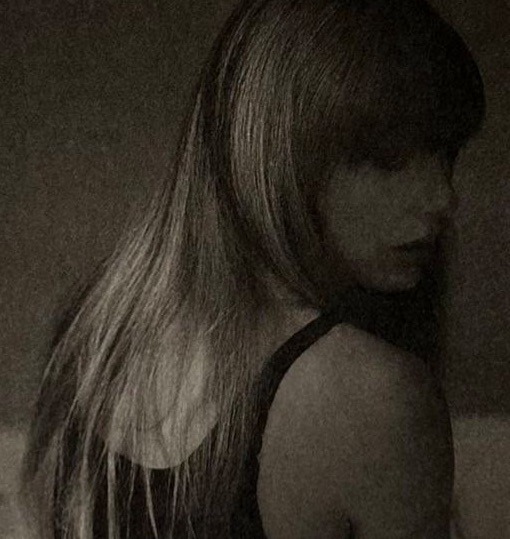
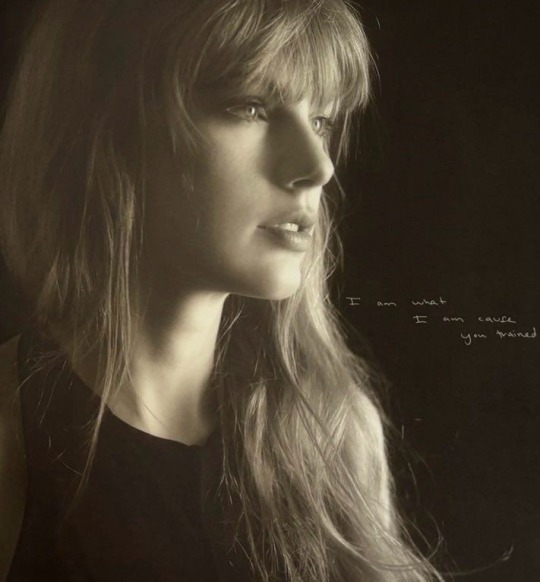
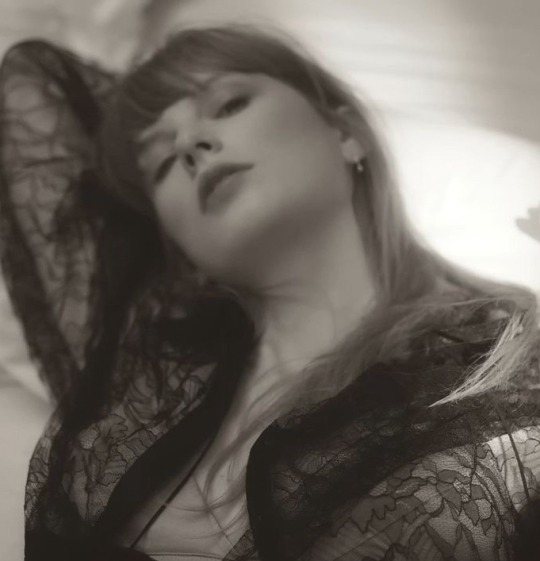
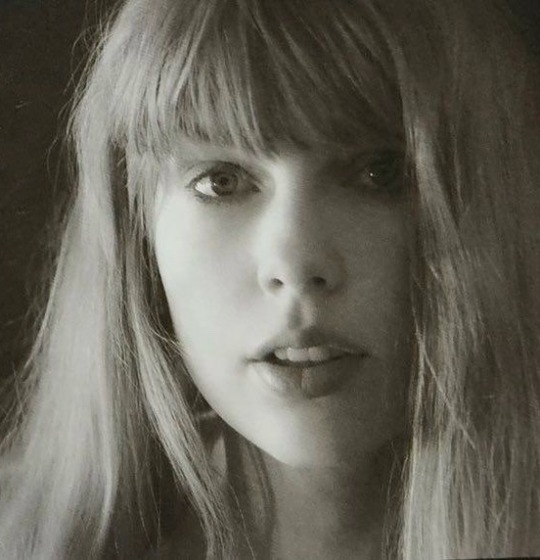
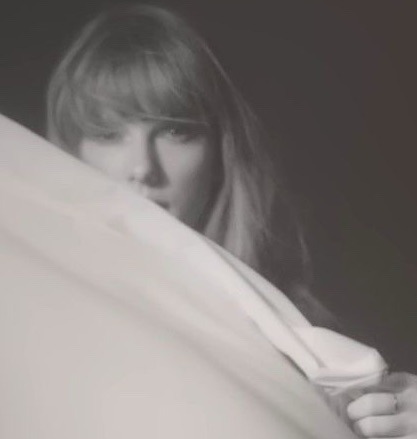
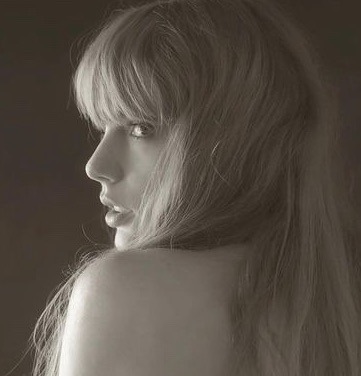

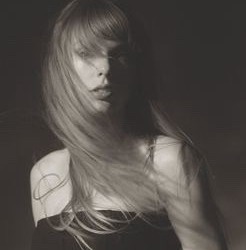
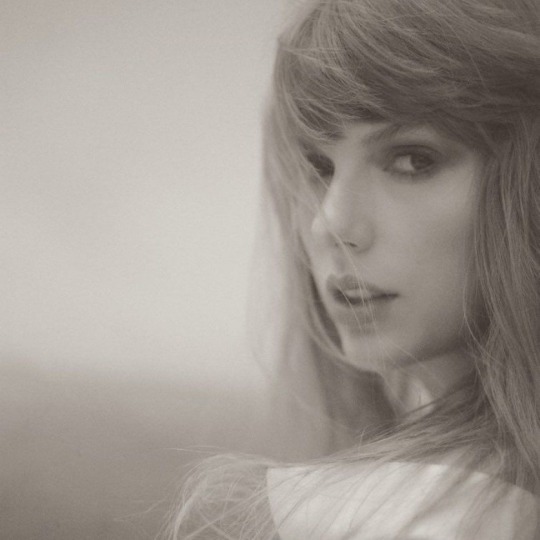
i would've died for your sins, instead i just died inside
#taylor swift#the tortured poets department#taylor swift ttpd#ttpd anthology#ttpd era#ts ttpd#ttpd#so long london#the smallest man who ever lived#matty healy#grungy girls#icons taylor swift#taylor swift users#taylor swift headers#dead poets society#female poets#sad poem#poems and poetry#love poems#writers and poets#writters on tumblr#loml#girls icons#icons twitter#taylor swift icons#site model twitter#site girls icons#coquette core
49 notes
·
View notes
Note
Hey! It has been on my mind lately and i just wanna ask..idk if it would make sense but i just noticed that nowadays ppl cant separate the authors and their books (ex. when author wrote a story about cheating and ppl starts bashing the author for romanticizing cheating and even to a point of cancelling the author for not setting a good/healthy example of a relationship) any thoughts about it?
I have many, many thoughts on this, so this may get a little unwieldy but I'll try to corall it together as best I can.
But honestly, I think sometimes being unable to separate the author from the work (which is interesting to me to see because some people are definitely not "separating" anything even though they think they are; they just erase the author entirely as an active agent, isolate the work, and call it "objectivity") has a lot to do with some people being unable to separate the things they read from themselves.
I'm absolutely not saying it's right, but it's an impulse I do understand. If you read a book and love it, if it transforms your life, or defines a particular period of your life, and then you find out that the author has said or done something awful--where does that leave you? Someone awful made something beautiful, something you loved: and now that this point of communion exists between you and someone whose views you'd never agree with, what does that mean for who you are? That this came from the mind of a person capable of something awful and spoke to your mind--does that mean you're like them? Could be like them?
Those are very uncomfortable questions and I think if you have a tendency to look at art or literature this way, you will inevitable fall into the mindset where only "Good" stories can be accepted because there's no distinction between where the story ends and you begin. As I said, I can see where it comes from but I also find it profoundly troubling because i think one of the worst things you can do to literature is approach it with the expectation of moral validation--this idea that everything you consume, everything you like and engage with is some fundamental insight into your very character as opposed to just a means of looking at or questioning something for its own sake is not just narrow-minded but dangerous.
Art isn't obliged to be anything--not moral, not even beautiful. And while I expend very little (and I mean very little) energy engaging with or even looking at internet / twitter discourse for obvious reasons, I do find it interesting that people (online anyway) will make the entire axis of their critique on something hinge on the fact that its bad representation or justifying / romanticizing something less than ideal, proceeding to treat art as some sort of conduit for moral guidance when it absolutely isn't. And they will also hold that this critique comes from a necessarily good and just place (positive representation, and I don't know, maybe in their minds it does) while at the same time setting themselves apart from radical conservatives who do the exact same thing, only they're doing it from the other side.
To make it abundantly clear, I'm absolutely not saying you should tolerate bigots decrying that books about the Holocaust, race, homophobia, or lgbt experiences should be banned--what I am saying, is that people who protest that a book like Maus or Persepolis is going to "corrupt children", and people who think a book exploring the emotional landscape of a deeply flawed character, who just happens to be from a traditionally marginalised group or is written by someone who is, is bad representation and therefore damaging to that community as a whole are arguments that stem from the exact same place: it's a fundamental inability, or outright refusal, to accept the interiority and alterity of other people, and the inherent validity of the experiences that follow. It's the same maniacal, consumptive, belief that there can be one view and one view only: the correct view, which is your view--your thoughts, your feelings.
There is also dangerous element of control in this. Someone with racist views does not want their child to hear anti-racist views because as far as they are concerned, this child is not a being with agency, but a direct extension of them and their legacy. That this child may disagree is a profound rupture and a threat to the cohesion of this person's entire worldview. Nothing exists in and of and for itself here: rather the multiplicity of the world and people's experiences within it are reduced to shadowy agents that are either for us or against us. It's not about protecting children's "innocence" ("think of the children", in these contexts, often just means "think of the status quo"), as much as it is about protecting yourself and the threat to your perceived place in the world.
And in all honestt I think the same holds true for the other side--if you cannot trust yourself to engage with works of art that come from a different standpoint to yours, or whose subject matter you dislike, without believing the mere fact of these works' existence will threaten something within you or society in general (which is hysterical because believe me, society is NOT that flimsy), then that is not an issue with the work itself--it's a personal issue and you need to ask yourself if it would actually be so unthinkable if your belief about something isn't as solid as you think it is, and, crucially, why you have such little faith in your own critical capacity that the only response these works ilicit from you is that no one should be able to engage with them. That's not awareness to me--it's veering very close to sticking your head in the sand, while insisting you actually aren't.
Arbitrarily adding a moral element to something that does not exist as an agent of moral rectitude but rather as an exploration of deeply human impulses, and doing so simply to justify your stance or your discomfort is not only a profoundly inadequate, but also a deeply insidious, way of papering over your insecurities and your own ignorance (i mean this in the literal sense of the word), of creating a false and dishonest certainty where certainty does not exist and then presenting this as a fact that cannot and should not be challenged and those who do are somehow perverse or should have their characters called into question for it. It's reductive and infantilising in so many ways and it also actively absolves you of any responsibility as a reader--it absolves you of taking responsibility for your own interpretation of the work in question, it absolves you of responsibility for your own feelings (and, potentially, your own biases or preconceptions), it absolves you of actual, proper, thought and engagement by laying the blame entirely on a rogue piece of literature (as if prose is something sentient) instead of acknowledging that any instance of reading is a two-way street: instead of asking why do I feel this way? what has this text rubbed up against? the assumption is that the book has imposed these feelings on you, rather than potentially illuminated what was already there.
Which brings me to something else which is that it is also, and I think this is equally dangerous, lending books and stories a mythical, almost supernatural, power that they absolutely do not have. Is story-telling one of the most human, most enduring, most important and life-altering traditions we have? Yes. But a story is also just a story. And to convince yourself that books have a dangerous transformative power above and beyond what they are actually capable of is, again, to completely erase people's agency as readers, writers' agency as writers and makers (the same as any other craft), and subsequently your own. And erasing agency is the very point of censors banning books en masse. It's not an act of stupidity or blind ignorance, but a conscious awareness of the fact that people will disagree with you, and for whatever reason you've decided that you are not going to let them.
Writers and poets are not separate entities to the rest of us: they aren't shamans or prophets, gifted and chosen beings who have some inner, profound, knowledge the rest of us aren't privy to (and should therefore know better or be better in some regard) because moral absolutism just does not exist. Every writer, no matter how affecting their work may be, is still Just Some Guy Who Made a Thing. Writing can be an incredibly intimate act, but it can also just be writing, in the same way that plumbing is plumbing and weeding is just weeding and not necessarily some transcendant cosmic endeavour in and of itself. Authors are no different, when you get down to it, from bakers or electricians; Nobel laureates are just as capable of coming out with distasteful comments about women as your annoying cousin is and the fact that they wrote a genre-defying work does not change that, or vice-versa. We imbue books with so much power and as conduits of the very best and most human traits we can imagine and hope for, but they aren't representations of the best of humanity--they're simply expressions of humanity, which includes the things we don't like.
There are some authors I love who have said and done things I completely disagree with or whose views I find abhorrent--but I'm not expecting that, just because they created something that changed my world, they are above and beyond the ordinarly, the petty, the spiteful, or cruel. That's not condoning what they have said and done in the least: but I trust myself to be able to read these works with awareness and attention, to pick out and examine and attempt to understand the things that I find questionable, to hold on to what has moved me, and to disregard what I just don't vibe with or disagree with. There are writers I've chosen not to engage with, for my own personal reasons: but I'm not going to enforce this onto someone else because I can see what others would love in them, even if what I love is not strong enough to make up for what I can't. Terrance Hayes put perfectly in my view, when he talks about this and being capable of "love without forgiveness". Writing is a profoundly human heritage and those who engage with it aren't separate from that heritage as human because they live in, and are made by, the exact same world as anyone else.
The measure of good writing for me has hardly anything to do with whatever "virtue" it's perceived to have and everything to do with sincerity. As far as I'm concerned, "positive representation" is not about 100% likeable characters who never do anything problematic or who are easily understood. Positive representation is about being afforded the full scope of human feelings, the good, the bad, and the ugly, and not having your humanity, your dignity, your right to exist in the world questioned because all of these can only be seen through the filter of race, or gender, religion, or ethicity and interpreted according to our (profoundly warped) perceptions of those categories and what they should or shouldn't represent. True recognition of someone's humanity does not lie in finding only what is held in common between you (and is therefore "acceptable", with whatever you put into that category), but in accepting everything that is radically different about them and not letting this colour the consideration you give.
Also, and it may sound harsh, but I think people forget that fictional characters are fictional. If I find a particularly fucked up relationship dynamic compelling (as I often do), or if I decide to write and explore that dynamic, that's not me saying two people who threaten to kill each other and constantly hurt each other is my ideal of romance and that this is exactly how I want to be treated: it's me trying to find out what is really happening below the surface when two people behave like this. It's me exploring something that would be traumatizing and deeply damaging in real life, in a safe and fictional setting so I can gain some kind of understanding about our darker and more destructive impulses without being literally destroyed by them, as would happen if all of this were real. But it isn't real. And this isn't a radical or complex thing to comprehend, but it becomes incomprehensible if your sole understanding of literature is that it exists to validate you or entertain you or cater to you, and if all of your interpretations of other people's intentions are laced with a persistent sense of bad faith. Just because you have not forged any identity outside of this fictional narrative doesn't mean it's the same for others.
Ursula K. le Guin made an extremely salient point about children and stories in that children know the stories you tell them--dragons, witches, ghouls, whatever--are not real, but they are true. And that sums it all up. There's a reason children learning to lie is an incredibly important developmental milestone, because it shows that they have achieved an incredibly complex, but vitally important, ability to hold two contradictory statements in their minds and still know which is true and which isn't. If you cannot delve into a work, on the terms it sets, as a fictional piece of literature, recognize its good points and note its bad points, assess what can have a real world impact or reflects a real world impact and what is just creative license, how do you possible expect to recognize when authority and propaganda lies to you? Because one thing propaganda has always utilised is a simplistic, black and white depiction of The Good (Us) and The Bad (Them). This moralistic stance regarding fiction does not make you more progressive or considerate; it simply makes it easier to manipulate your ideas and your feelings about those ideas because your assessments are entirely emotional and surface level and are fuelled by a refusal to engage with something beyond the knee-jerk reaction it causes you to have.
Books are profoundly, and I do mean profoundly, important to me-- and so much of who I am and the way I see things is probably down to the fact that stories have preoccupied me wherever I go. But I also don't see them as vital building blocks for some core facet or a pronouncement of Who I Am. They're not badges of honour or a cover letter I put out into the world for other people to judge and assess me by, and approve of me (and by extension, the things I say or feel). They're vehicles through which I explore and experience whatever it is that I'm most caught by: not a prophylactic, not a mode of virtue signalling, and certainly not a means of signalling a moral stance.
I think at the end of the day so much of this tendency to view books as an extension of yourself (and therefore of an author) is down to the whole notion of "art as a mirror", and I always come back to Fran Lebowitz saying that it "isn't a mirror, it's a door". And while I do think it's important to have that mirror (especially if you're part of a community that never sees itself represented, or represented poorly and offensively) I think some people have moved into the mindset of thinking that, in order for art to be good, it needs to be a mirror, it needs to cater to them and their experiences precisely--either that or that it can only exist as a mirror full stop, a reflection of and for the reader and the writer (which is just incredibly reductive and dismissive of both)--and if art can only exist as a mirror then anything negative that is reflected back at you must be a condemnation, not a call for exploration or an attempt at understanding.
As I said, a mirror is important but to insist on it above all else isn't always a positive thing: there are books I related to deeply because they allowed me to feel so seen (some by authors who looked nothing like me), but I have no interest in surrounding myself with those books all the time either--I know what goes on in my head which is precisely why I don't always want to live there. Being validated by a character who's "just like me" is amazing but I also want--I also need-- to know that lives and minds and events exist outside of the echo-chamber of my own mind. The mirror is comforting, yes, but if you spend too long with it, it also becomes isolating: you need doors because they lead you to ideas and views and characters you could never come up with on your own. A world made up of various Mes reflected back to me is not a world I want to be immersed in because it's a world with very little texture or discovery or room for growth and change. Your sense of self and your sense of other people cannot grow here; it just becomes mangled.
Art has always been about dialogue, always about a me and a you, a speaker and a listener, even when it is happening in the most internal of spaces: to insist that art only ever tells you what you want to hear, that it should only reflect what you know and accept is to undermine the very core of what it seeks to do in the first place, which is establish connection. Art is a lifeline, I'm not saying it isn't. But it's also not an instruction manual for how to behave in the world--it's an exploration of what being in the world looks like at all, and this is different for everyone. And you are treading into some very, very dangerous waters the moment you insist it must be otherwise.
Whatever it means to be in the world, it is anything but straightforward. In this world people cheat, people kill, they manipulate, they lie, they torture and steal--why? Sometimes we know why, but more often we don't--but we take all these questions and write (or read) our way through them hoping that, if we don't find an answer, we can at least find our way to a place where not knowing isn't as unbearable anymore (and sometimes it's not even about that; it's just about telling a story and wanting to make people laugh). It's an endless heritage of seeking with countless variations on the same statements which say over and over again I don't know what to make of this story, even as I tell it to you. So why am I telling it? Do I want to change it? Can I change it? Yes. No. Maybe. I have no certainty in any of this except that I can say it. All I can do is say it.
Writing, and art in general, are one of the very, very, few ways we can try and make sense of the apparently arbitrary chaos and absurdity of our lives--it's one of the only ways left to us by which we can impose some sense of structure or meaning, even if those things exists in the midst of forces that will constantly overwhelm those structures, and us. I write a poem to try and make sense of something (grief, love, a question about octopuses) or to just set down that I've experienced something (grief, love, an answer about octpuses). You write a poem to make sense of, resolve, register, or celebrate something else. They don't have to align. They don't have to agree. We don't even need to like each other much. But in both of these instances something is being said, some fragment of the world as its been perceived or experienced is being shared. They're separate truths that can exist at the same time. Acknowledging this is the only means we have of momentarily bridging the gaps that will always exist between ourselves and others, and it requires a profound amount of grace, consideration and forbearance. Otherwise, why are we bothering at all?
#this is so much longer than i intended but yeah. those are my very long 2 cents#tbh i also think social media makes it worse in a way especially bc “transparency” has become a form of public vetting which is insane to m#me* transparency and honesty are not the same thing ans its ludicrous that this is where we're at and while we all have to live with this#demand for transparency i do think it affects writers differently bc the whole art as mirror thing comes to the fore in this argument#why would you sit with your feelings about a book when its easier and more accessible for you to @ the authors twitter handle#but anyway#ask#anonymous#book talks
399 notes
·
View notes
Text
I love these


#wga strong#support writers strike#that succession one and ‘logan roy is dead long live writers’ one I LOVE
233 notes
·
View notes
Note
I look back at that one art of Kaycee looking at her tail poking through her clothes and I giggle hee hoooo.
Good body horror ideas of how Kaycee turns into an otter? Clothes no longer fitting, claws and teeth tearing out
Also do you have any Inscryption fiiiiics?
:3c GIGGLE thank u that ones honestly a fav of mine i just love turning her into an oiter its so her. i luv thinking about the Body Horror aspects of transforming and how it must feel, like yea she's turning into an adorable animal but how tf does it feel to have your bones crunching up like that?? vision changing? no longer having vocal chords for human speech?
still i admit otter is more of a cuter-softer less horrifying trans for her LOL, after all if she turns full otter she'll actually end up smaller than a human, no clothes ripped up in the process! 👍 the worst part is being a creature designed to live almost entirely in the water, she'd have to get someone to carry her around if she wants to go on land LOLL
dire (were)wolf kaycee however is where i indulge more in the body horror >:3c liiike i enjoy making her vomit blood from the process of actually turning into a huge BEAST and totally loses her mind in visceral feral agony for 40 mins mininum
also im so sorry. i have no fics!! cant write to save my life. maybe some day :)
#but i can Recommend a fic. i read exactly one kaycee fic cause it was recommended to me a long time ago#since the writer credited me as an insp for how Kaycee was written and it was very good!!#i think it was called Short Lives of the Ouroboros ? something like that👍 on ao3 if that place isnt being ddosed (?)#ask
128 notes
·
View notes
Text
How does a broken heart keep beating, how do people keep living with so much pain and grief? If that's not a miracle what is?
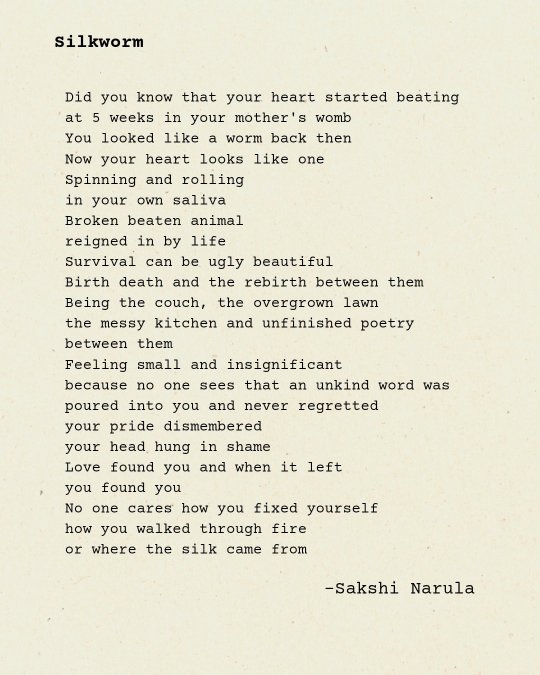
#poetry#poems and poetry#poets on tumblr#spilled ink#poetsandwriters#writers and poets#writers on tumblr#love poem#spilledink#poetry book#long reads#poetry quotes#inspiring words#inspiring quotes#quotes to live by#quotes#literature#excerpts#sakshi narula#spilled words#my writing#dark academism#dark poetry#light academia#life poetry#life poems#life quotes#life quote#prose poem#poem
34 notes
·
View notes